THE MAGALLANES-ELCANO EXPEDITION: THE BEGINNING OF THE GLOBALIZATION OF COMMERCIAL LAW
DOI:
https://doi.org/10.51743/cih.83Keywords:
Circumnavigation, globalization, Commercial Law, Maritime Law, Market Law, Ordinances, companyAbstract
This paper aims to analyse how the Magallanes-Elcano expedition, in which the first circumnavigation of the earth was carried out, marked the beginning of a transcendental change for Spanish Commercial Law by connecting different territories in Europe, America, Asia and Africa and establishing different trade routes by sea. Indeed, although Commercial Law will continue to be an eminently national set of rules, the journey will cause external factors to begin to be taken into account and they will represent the principle of globalisation that currently governs the field of Commercial Law. This first step in the change of legal paradigm will affect the Maritime Law and later, with the passage of the centuries, it will have repercussions in all the mercantile discipline to configure a Market Law in detriment of the state Commercial Law.
Downloads
Global Statistics ℹ️
|
1130
Views
|
906
Downloads
|
|
2036
Total
|
|
References
Jesús ALFARO ÁGUILA-REAL, “El papel de los usos en el Código de Comercio (notas para una reinterpretación del art. 2 CCo)” en Escritos jurídicos en memoria de Luis Mateo Rodríguez, vol. 2, Santander: Universidad de Cantabria, 1993, p. 3-22.
Ignacio ARROYO MARTÍNEZ, Curso de Derecho Marítimo, Cizur Menor: Aranzadi, 2015.
Ignacio ARROYO MARTÍNEZ “La aportación de las ordenanzas del consulado de Bilbao al desarrollo del Derecho Marítimo”, Anuario de Derecho Marítimo (17/2000), p. 25-81.
Alberto BERCOVITZ RODRÍGUEZ-CANO, “Notas sobre el origen del Derecho mercantil” en Estudios jurídicos en homenaje a Joaquín Garrigues, vol. 1, Madrid: Tecnos, 1971, p. 1-44.
Jacobo de CESSOLIS, El juego del ajedrez o Dechado de fortuna, Madrid: Siruela, 1991.
Javier DÍVAR, El Consulado de Bilbao y sus Ordenanzas de comercio de 1737, Bilbao: Academia Vasca de Derecho, 2009.
Francesco GALGANO, Historia del Derecho Mercantil, Barcelona: Laia, 1980.
Rafael GIBERT, “Fuentes del Derecho mercantil en Castilla (1494-1828)”, Boletín de la Cámara Oficial de Comercio e Industria de Granada (18-19/1963), p. 1-19.
Santiago HIERRO ANIBARRO, El origen de la sociedad anónima en España. Madrid: Tecnos, 1998.
Aquilino IGLESIA FERREIRÓS, “El Libro del Consulado del Mar” en Del ius mercatorum al derecho mercantil: III Seminario de Historia del Derecho Privado, Sitges, 28-30 de mayo de 1992, Madrid: Marcial Pons, 1997, p. 109-142.
Rafael JIMÉNEZ DE PARGA, “Condicionamientos históricos del derecho mercantil en la fase inicial de su formación” en Estudios de Derecho Mercantil en homenaje a Rodrigo Uría, Madrid: Civitas, 1978, p. 315-336.
Esther MARTÍNEZ, “De Sevilla a la Especiería, y a la Historia”, Revista española de defensa (361/2019), p. 10-19.
Miguel MARTÍNEZ MUÑOZ, “La quiebra del principio de soberanía ante el paradigma de la globalización: una mirada desde el Derecho mercantil” en Sovranità e Rappresentanza: Stato, Autonomia territoriali e processi di integrazione sopranazionale, Napoli: Editoriale Scientifica, 2018, p. 123-133.
Carlos MARTÍNEZ SHAW, “La primera globalización”, Revista española de defensa (361/2019), p. 8-9.
José Antonio MARTÍNEZ TORRES, “Gobernar el Mundo. La polémica Mare Liberum versus Mare Clausum en las Indias Orientales (1603-1625)”, Anuario de Estudios Americanos (74/2017), p. 71-96. DOI: https://doi.org/10.3989/aeamer.2017.1.03
Amando MELÓN Y RUIZ DE GORDEJUELA, “Magallanes y la primera vuelta al mundo” en Antonio Ballesteros y Beretta (Dir.), Historia de América y de los pueblos americanos, tomo VI, Barcelona: Salvat Editores, 1952, p. 449-748.
Jesús MOTILLA MARTÍNEZ, “Las Ordenanzas del Consulado de Bilbao, interesante fuente histórica de Derecho mercantil. (Versión paleográfica y notas sobre fragmentos del texto)”, Jurídica. Anuario del Departamento de Derecho de la Universidad Iberoamericana (15/1983), p. 189-219.
Miguel MOTOS GUIRAO y Jesús BLANCO CAMPAÑA, “Proceso histórico de formación del Código de Comercio” en Centenario del Código de Comercio, vol. 2, Madrid: Ministerio de Justicia, 1991, p. 11-104.
Clotilde OLARÁN MÚGICA, “El Consulado de Bilbao y sus ordenanzas. Ordenanzas manuscritas e impresas”, Jado. Boletín de la Academia Vasca de Derecho (10/2011), p. 266-270.
Manuel OLIVENCIA, “La comisión de las Naciones Unidas para el Derecho Mercantil internacional (UNCITRAL): balance de un decenio (1968-1977)” en Estudios de Derecho Mercantil en homenaje al Profesor Antonio Polo, Madrid: Edersa, 1981, p. 753-782.
Carlos PETIT, Historia del Derecho Mercantil, Madrid: Marcial Pons, 2016.
Ángel ROJO, “La Codificación mercantil española” en Centenario del Código de Comercio. México: Universidad Autónoma de México, 1991, p. 474-515.
Jesús RUBIO, Introducción al Derecho Mercantil, Barcelona: Nauta, 1969.
Blanca SÁENZ DE SANTA MARÍA GÓMEZ-MAMPASO “La influencia del Mediterráneo en la configuración de la identidad europea” en La proyección exterior de la UE hacia el Mediterráneo sur tras las primaveras árabes, Cizur Menor: Aranzadi, 2018, p. 19-46.
Blanca SÁENZ DE SANTA MARÍA GÓMEZ-MAMPASO, “Codificación y formación de los Códigos Civil, Criminal y Mercantil” en Cortes y Constitución de Cádiz: 200 años, vol. 2, Madrid: Espasa, 2011, p. 469-481.
Rodrigo URÍA y Aurelio MENÉNDEZ, “El Derecho Mercantil” en Curso de Derecho Mercantil, tomo I, Cizur Menor: Civitas, 2006, p. 25-48.
José de VEITIA LINAGE, Norte de la contratación de las Indias Occidentales, Madrid: Instituto de Estudios Fiscales, 1981.
Gustavo VISENTINI, “Le nuove frontiere del Diritto Commerciale nella crisi economica”, Diritto Fallimentare e delle Società Commerciali (5/2009), p. 593-605
Downloads
Published
How to Cite
Issue
Section
License
The Fundación Universitaria Española publishing house preserves the patrimonial rights (copyright) of published works, and encourages and allows their reuse. The works are published in the electronic edition of the journal under a license “Creative Commons Atribución/Reconocimiento-NoComercial 4.0 Licencia Pública Internacional — CC BY-NC 4.0”, and can be copied, used, disseminated, transmitted and publicly exhibited, provided that : a) the authorship and original source of its publication is cited (journal, publisher and URL of the work); b) are not used for commercial purposes; c) the existence and specifications of this license of use are mentioned.
The author / s partially transfer the property rights (copyright) of this work to the Fundación Universitaria Española (Spain) (NIF: G28433670), for the printed and online editions.
It also declares to have respected the ethical principles of research and to be free from any conflict of interest.
«C.I.H.» encourages the authors and the scientific community to the maximum promotion and dissemination of the works in their final version through:
1) Your list of contacts (emails) and social networks (Facebook, Twitter, LinkedIn ...).
2) Institutional repository of your University and public repositories (Mendeley, Cosis ...).
3) Scientific social networks (ResearchGate, Academia.edu, Kudos ...).
4) Personal or institutional website, blog, etc.
5) Google Scholar, ORCID, ResearchID, ScopusID, Dimensions, PlumX ...
6) Printed copies purchased directly and sent to specialists for reading and subsequent citation if appropriate.
For the nomination of future articles by authors of "C.I.H.", the impact of previous works will be taken into account, so that those with citation higher than the annual average of the journal will be preferred.






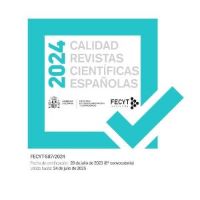




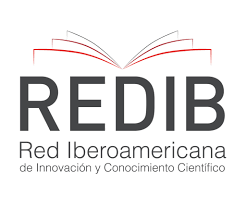
2.jpg)


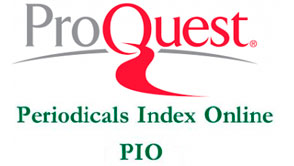
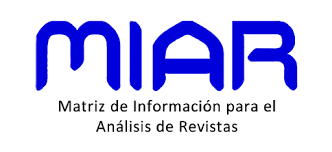








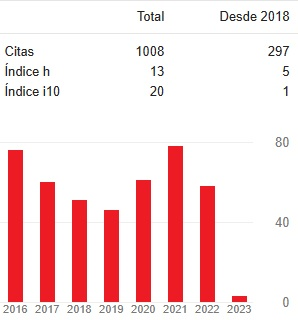



1.png)
1.png)

1.png)


.png)
.png)

.png)
1.png)
1.png)
